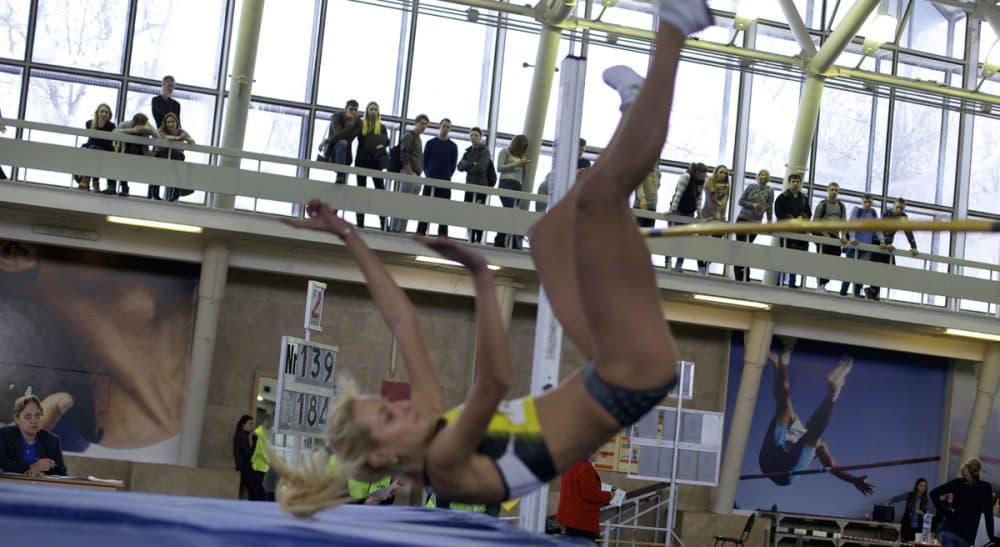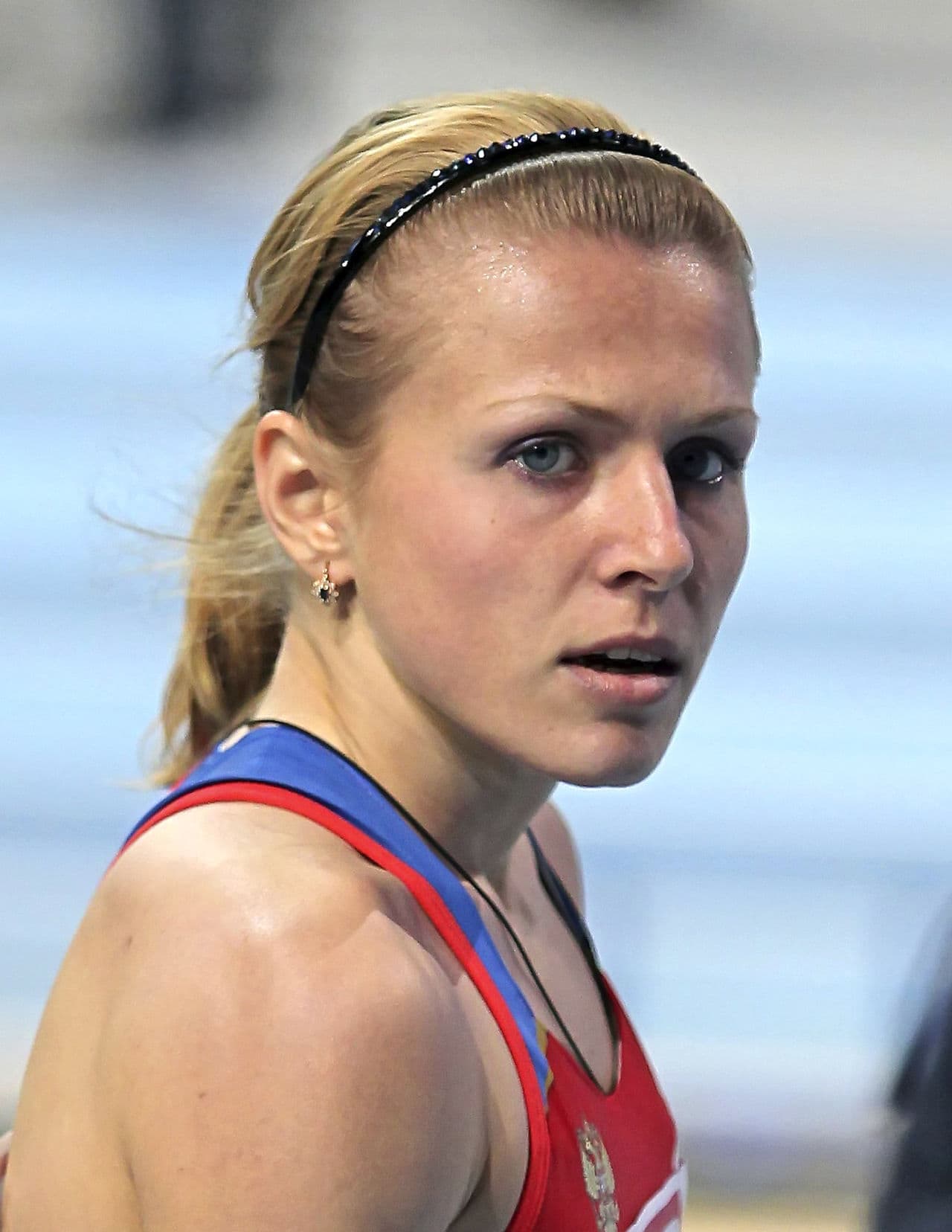Advertisement
A Culture Of Cheating: Russia Should Not Be Allowed To Compete In Rio

Here’s everything you need to know about the Russian Olympic doping scandal: If Russia were a college football team, it would get the death penalty.
If Russia were a cyclist, it would be banned from the sport for life.
If Russia were a poker player, it would be shot.
The Russian Olympic Federation is as bad as it gets, as bad as the East Germans were in the 1970s and 1980s. Their doping program is institutionalized, a soup-to-nuts template that plans, delivers, oversees, then covers up the use of performance-enhancing drugs by its elite athletes, a blueprint that requires the complicity of coaches, medical personnel, drug testers, top sports and government officials, cabinet ministers — even FSB agents, Russia’s equivalent of the FBI. The Olympic Movement in Russia swims in a cesspool of drugs.
The Olympic Movement in Russia swims in a cesspool of drugs.
This week the World Anti-Doping Agency (WADA) announced it would launch its second investigation in 17 months into Russia’s state-sponsored doping program. The first, a 325-page report completed in November 2015, concluded that Russia had “sabotaged” the 2012 Summer Olympics in London through a “deeply rooted culture of cheating.” It was commissioned only after a German television documentary gave voice to the two heroes of this story, husband and wife whistleblowers Yuliya and Vitaly Stepanov, who, at great personal risk, exposed and provided proof of their country’s doping program.
Yuliya was an elite 800-meter runner being groomed for the London Games. When she was injured she was basically abandoned by the Russian track and field machine, and without its protection, failed an EPO drug test and faced a two-year suspension from competition. It was only then she agreed to help stop the cheating by secretly recording her coach giving her steroids, her team medical director advising how she could get back into the drug program, and Mariya Savinova, a gold medalist in the 800-meter in London, telling her: “My coach helps me to cover up tests ... everyone in Russia is on pharma.”

Her husband Vitaly Stepanov was an idealistic, low level drug tester who believed in ethical competition. Disillusioned when offered bribes and told by Russian officials which athletes to test, which not to test, and “what happens in Russia, stays in Russia,” he sent over 200 emails and 50 letters to WADA over three years chronicling what he’d witnessed first hand.
“RUSADA [the Russian anti-doping agency] does testing, but fake testing,” he told CBS’s "60 Minutes." Despite the raft of evidence, WADA told Stepanov it lacked the authority to investigate Russia inside of Russia. Instead they referred him to some German film makers, and the resulting documentary rocked the world of track and field and led to the full scale independent WADA report. The International Track Federation (IAAF), then, had little choice but to suspend Russia from world competition, a suspension that remains in effect, but will be reviewed in June to determine whether Russia’s track and field athletes will be allowed to compete in Rio.
Which they absolutely should not be. Not if the IAAF, the International Olympic Committee (IOC), and WADA have a shred of integrity. Russia clearly hasn’t changed.
WADA’s newest investigation, announced Tuesday, was only ordered after last Sunday’s "60 Minutes" broadcast alleged at least four Russian gold medalists had tested positive for steroids in Sochi, but had their test results covered up by Sochi’s doping lab. Vitaly Stepanov learned this from Grigory Rodchenkov, who was the head of Sochi’s doping lab, but was fired by RUSADA after reports of malfeasance inside the lab surfaced. Stepanov, "60 Minutes" reported, had secretly recorded over 15 hours of conversations with Rodchenkov, and in those recordings Rodchenko detailed the inner workings of Russia’s drug program and the extent of the cover up. Russian athletes were able to escape detection in Sochi, he said, because FSB agents were working undercover in the doping lab, exchanging or destroying urine and blood samples to cover up negative findings. Rodchenkov is now reportedly hiding out somewhere in the U.S., fearful for his life since he knows so much about Russia’s Olympic conspiracy, and since he is in possession of “the Sochi list”: a document with all the names of all the Russian athletes who competed in Sochi while doping.
If the IOC -- so blind, so political, so riddled with corruption -- is going to begin to clean up its image, Russia is the place to start.
Are Russian Olympians the only ones who cheat? Certainly not. All countries have their dopers. Even Kenya has a serious PED problem, with 40 of its elite athletes failing drug tests since 2011, and the CEO of Athletics Kenya, Isaac Mwangi, being suspended for soliciting bribes to shorten the sentences of two of the athletes who were caught. Doping is a problem throughout the Olympic movement, and sports in general. But Russia is the only state that has been shown to actually have orchestrated the cheating, just as East Germany did a generation ago. Consequently, the Russian Olympic Federation should pay a huge price. It should be banned entirely from the Rio Games. Individual athletes could then petition the IOC to compete under the Olympic flag.
The 81 medals won by Russian athletes in London? The 33 medals won by Russian athletes in Sochi? They should be forfeited. All of them. The state-sponsored doping goes well beyond athletics. Wrestling, weight-lifting, boxing, biathlon, cross-country skiing, cycling, swimming, speed skating ... all should be under suspicion. If the IOC — so blind, so political, so riddled with corruption — is going to begin to clean up its image, Russia is the place to start.
